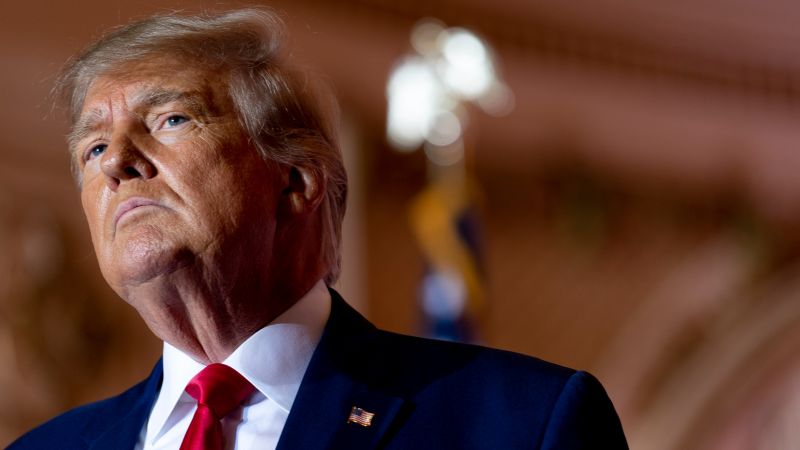
A version of this story appeared in The Point newsletter. To get it in your inbox, sign up for free here.
CNN
—
At an event held by the Republican Jewish Coalition in Las Vegas this past weekend, a cavalcade of GOP presidential wannabes paraded through, drawn to one of the first 2024 cattle calls as they sought to build buzz for potential national bids.
There was Florida Gov. Ron DeSantis, Texas Sen. Ted Cruz, former New Jersey Gov. Chris Christie, former Vice President Mike Pence and Maryland Gov. Larry Hogan, to name just a few of the Republican luminaries who spoke to the group.
But it was a contender who wasn’t there in person – Donald Trump, the only one who has actually formally declared a presidential run, addressed the group by video – who looks to be the beneficiary of so many Republicans actively looking at running in 2024.
The best way to understand what I mean is to think of the Republican field like a math problem.
There is 100% of vote to go around in a Republican primary. Trump has – and this is a rough estimate at this early stage – 30-35%, thanks to his enduring popularity with the GOP base. Under that scenario, there would be somewhere around 65%-70% left for all the other candidates.
In a one-on-one race – say, Trump against DeSantis – that would be very good news for the non-Trump candidate.
The problem arises when a lot of candidates are vying for the non-Trump mantle. When you divvy up that 65%-70% up among, say, seven other candidates, then it’s very likely that Trump’s 30%-35% is enough for him to win early caucuses and primaries.
And, if past is prologue, what would be likely to happen is that all of the non-Trump candidates would call on the other non-Trump candidates to drop from the race, insisting that they are the only one with a real chance of beating the former president.
In the 2016 GOP primary, that went on for a while, as Trump continued to accumulate both delegates and momentum. By the time there was a single alternative, which was Cruz in that race, it was too late to stop the Trump train.
If the true goal of the Republicans not named Trump is to keep him from becoming the party’s nominee in 2024, the best way to do that would be to work together – like, now – to figure out who the strongest potential opponent would be and unite behind him or her.
But this is politics, where egos are big and every one has a blueprint that they think ends with them in the White House. Which makes that notion seem like an utter fantasy.
The Point: The bigger the eventual Republican field, the better for Donald Trump. Period.






